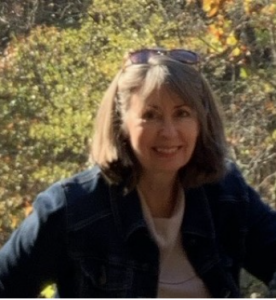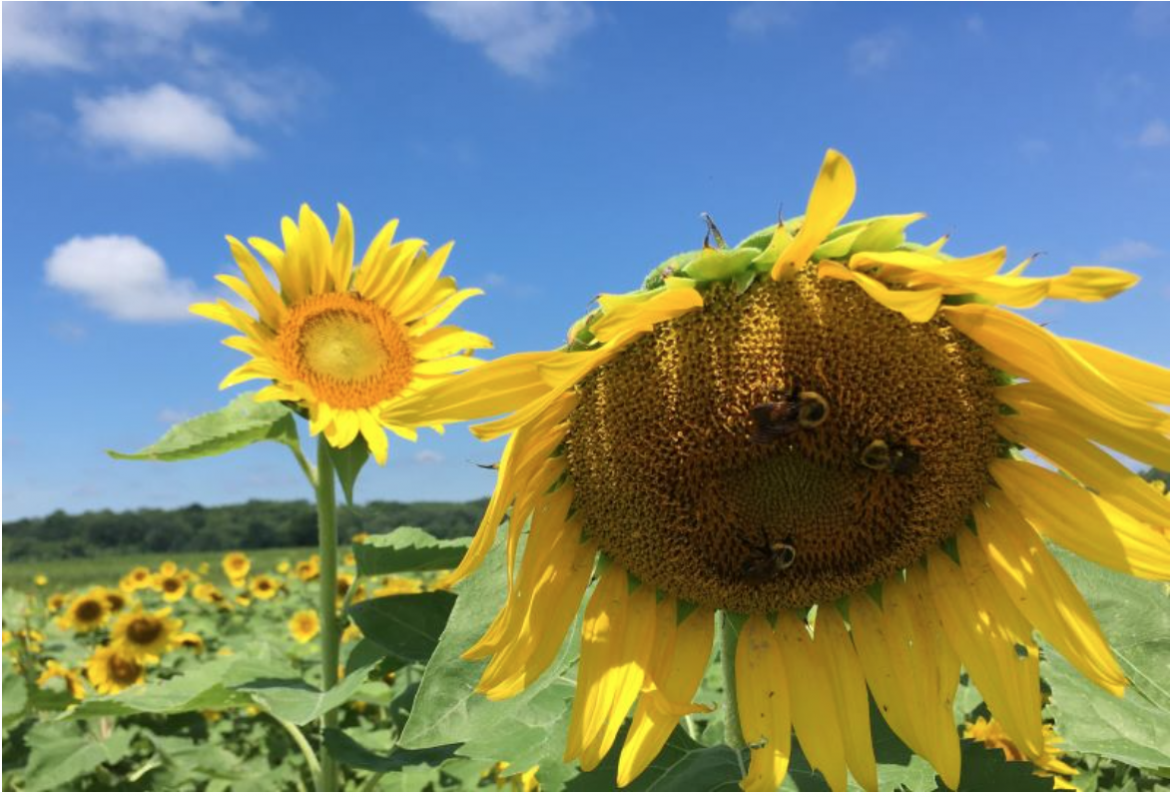by guest writer Cathy Jarrell, photo also by Cathy Jarrell,
The Lord God took the man and put him in the garden of Eden to work it and keep it. ~~ Genesis 2:15 ESV
Today, during an unusually warm winter day, I glanced through the window and saw honey bees swarming the bird feeder. Curious about what I was seeing, I read that at the end of winter, before pollen is readily available, bees will use the dust from cracked corn as a protein source for the bee bread they produce to feed their larvae. How magnificent! I had just filled the feeder with a combination that includes cracked corn. I quickly filled a dish with more and left it on the ground near the feeder. Before I could even step away, the bees swarmed and filled the dish.
Was it my imagination, or did they expect and appreciate my help?
Okay, maybe that’s going too far. I do get carried away with nature sometimes. Still, my small involvement in the bees’ work of providing for their colony filled me with joy. More than that, I felt like I was acting in partnership with them. I began to imagine the consequences of helping them find food. What could happen? Possibly, the colony might raise more young honeybees, or healthier bees, which could mean more pollination, which would contribute to more plant diversity and abundant food sources essential for survival of many species on earth, including us.
During a time of pandemic, many of us have felt so helpless. Our problems seem so large, but our ability to act is so constrained. We seek healing for ourselves and for the troubles that loom over our daily reality. We look to God to help us heal our fractured existence. What would God’s help look like?
I keep thinking of how good it felt when the bees responded to my food contribution. Is that something like what God had in mind in choosing humans to tend and keep the earth’s first garden in the Genesis story? Our active participation in the mystical cycle of creation spirals out into all the world in ways that we cannot fully imagine. Of course, as we know too well, our actions can spiral out into the world for good or for evil done to God’s good creation. But there is more to it than that. Our actions also spiral inward, affecting the state of our own souls. My very small act of participation in helping the bees made me feel connected, whole, and joyful. It was a moment of healing that makes me crave more, and so I will do more. Each act of care for our world reaches far out into creation in ways I cannot imagine and, perhaps, helps heal in ways that only God can see.
This is certainly not a new idea, but I’ve begun to think of helping all of God’s creation as a kind of healing spiritual discipline. I already do many things to help the environment, but I’m changing my mindset to think of them as regular acts of devotion to God, just as I regularly pray, worship, and serve others. For that matter, perhaps my actions to help the environment really are acts of love and service to others. After all, when I pray, I trust that God will work some transformation. I don’t understand the transformation that occurs, I just know that it does occur and is multiplied. I also know that the act of praying itself is healing. It follows, then, that I can also trust that God will take my efforts to keep plastic out of the environment, to tend pollinator-friendly garden plants, and to use fewer resources and transform and multiply those efforts, all for the benefit of every living thing.
In a time of pandemic, when we must limit our exposure to one another, I have found that I can still do some good, and I can still be intimately involved in life around me. Even if my small actions do not seem evident right now, they will multiply, especially if everyone else does the same. The sum of many small things by many people, done in a disciplined manner over time, can heal the earth and heal us, too.
Did the bees really expect my help? Did they really appreciate my participation? The more I think about it, the more I think the answer is yes. After all, they, too, were in God’s garden and heard God’s instructions to us to tend and keep it.
Reference: Miller, J. (2021, February 27). Why are Honeybees at My Bird Feeder? Mother Earth News. Retrieved from https://www.motherearthnews.com/homesteading-and-livestock/why-are-honeybees-at-my-birdfeeder-zbcz2004
Bio for Cathy Jarrell
 Cathy Jarrell is a retired medical writer, editor, and publisher. She enjoys nature walks with her husband, Sam, at their home in Saint Charles, Missouri, USA. Cathy enjoys many artistic pursuits, including painting and photography, mostly centering on the beauty of the natural world. Her primary writing interest concerns the intersection of human life and the natural world.
Cathy Jarrell is a retired medical writer, editor, and publisher. She enjoys nature walks with her husband, Sam, at their home in Saint Charles, Missouri, USA. Cathy enjoys many artistic pursuits, including painting and photography, mostly centering on the beauty of the natural world. Her primary writing interest concerns the intersection of human life and the natural world.
Gift of Wonder, Breath, and Celtic prayer cards are all on sale as we look forward to St. Patrick’s Day next week!
Take advantage of this sale now through March 17th.



2 comments
I believe that it was God who let her minister to bees:
#1 I’ve never heard that they would congregate in a bird feeder nor swarm in the dish
#2 Recently I read and I believe that it was God to let a beekeeper get the honey without the protective covering. They
swarmed such that it was easy to put them into a hive. There was no mention to them having to find the mother bee
like I have also read.
I thank you Christine for asking us to look around for epiphanies in a small way. like hearing the birds sing and for me to look on the ground in my walk to find even tiny blooms that are a so beautiful creation of God. I can think of 5 different blooms that I had not seen before.
Your welcome – I think like Cathy that “helping all of God’s creation as a kind of healing spiritual discipline.” Like her I’ve changed my mindset “to think of them as regular acts of devotion to God, just as I regularly pray, worship, and serve others. “